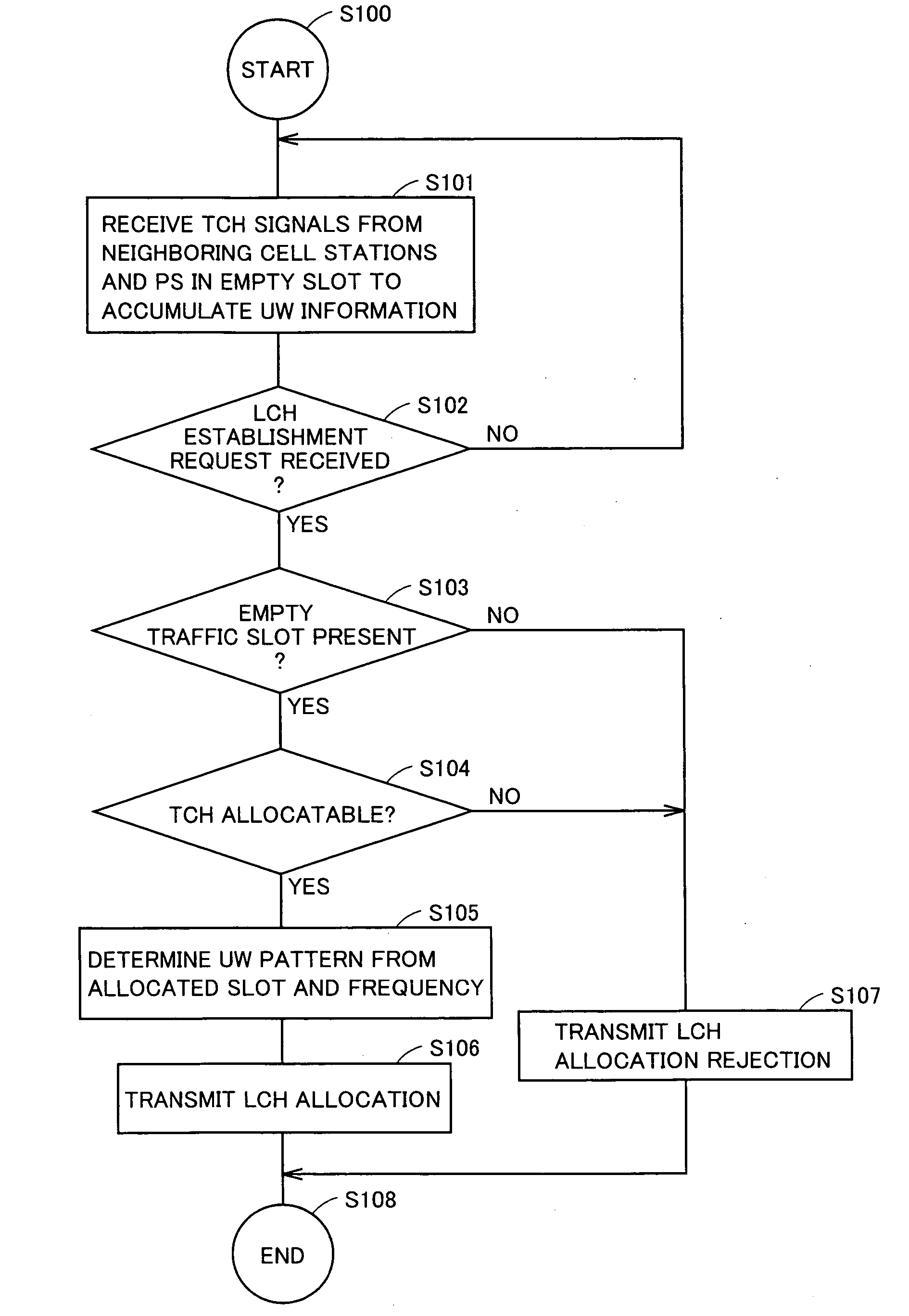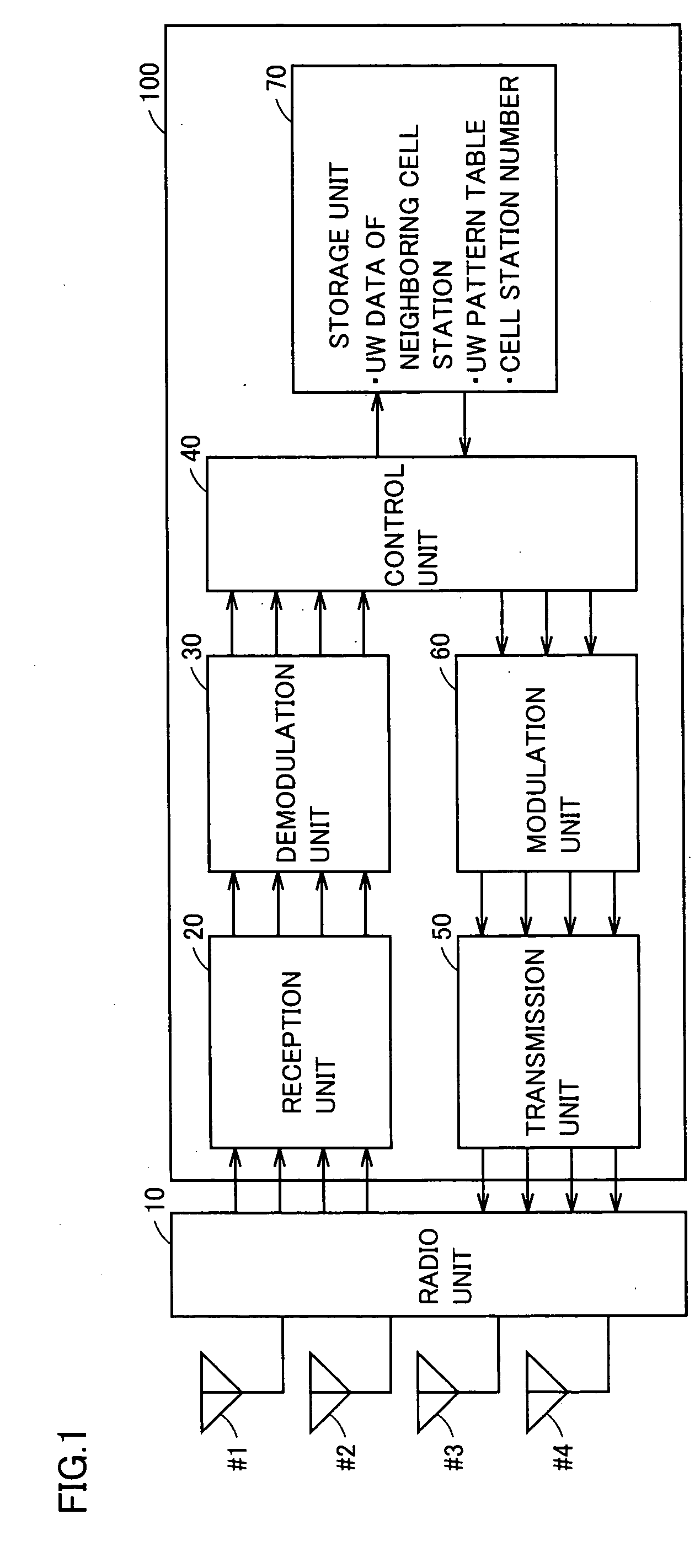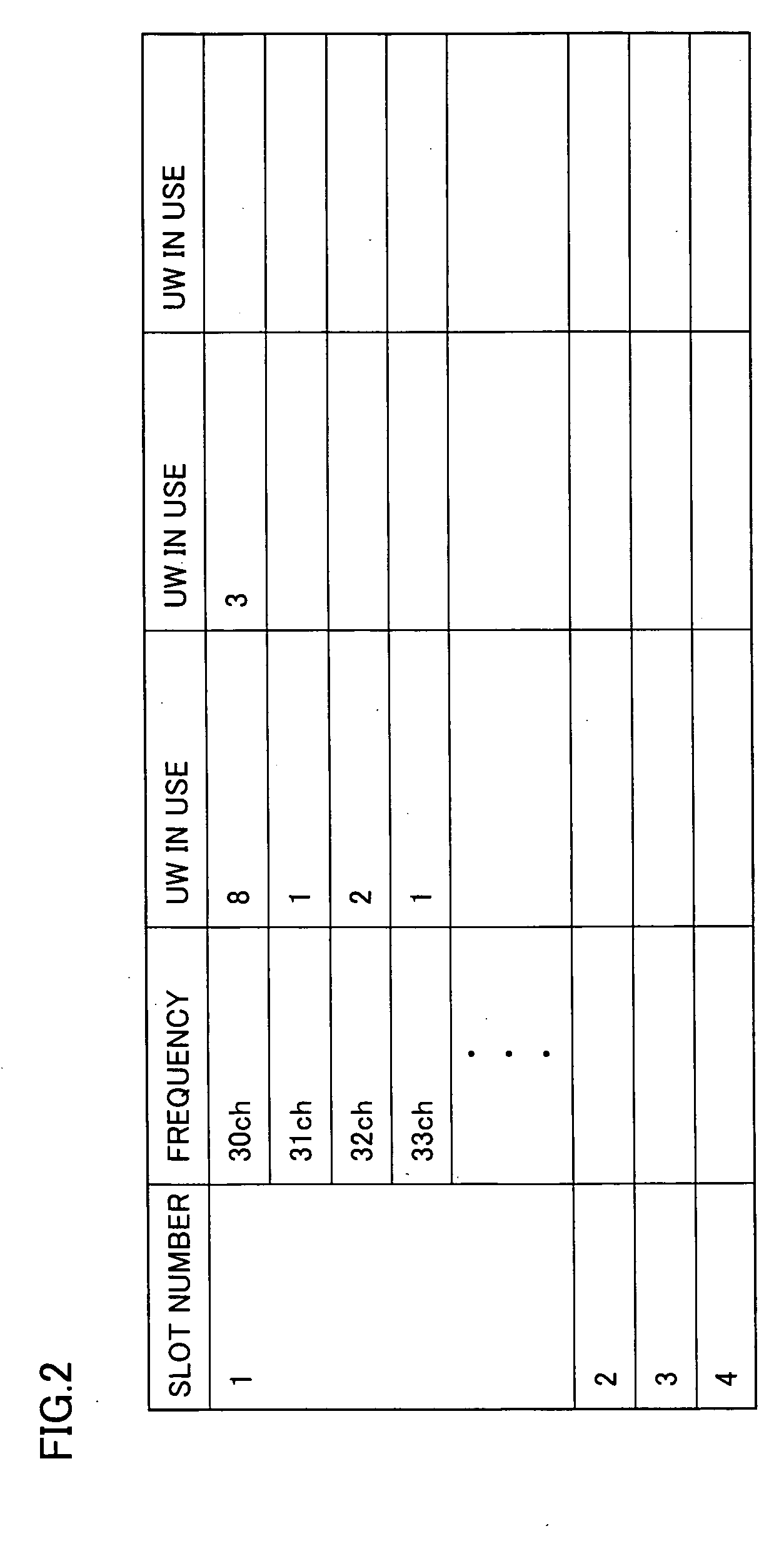Radio base device reference signal, allocation method, and reference signal allocation program
a radio base device and reference signal technology, applied in the direction of electrical equipment, radio transmission, connection management, etc., can solve the problems of deteriorating communication quality, affecting the quality of communication, and conventional css does not adequately address the problem of interference with users in another cell, so as to improve the quality of call and improve the interference between users
- Summary
- Abstract
- Description
- Claims
- Application Information
AI Technical Summary
Benefits of technology
Problems solved by technology
Method used
Image
Examples
first embodiment
[0057]FIG. 1 is a schematic block diagram showing a configuration of a radio cell station according to a first embodiment of the present invention.
[0058] Referring to FIG. 1, the radio cell station apparatus includes a radio unit 10, a plurality of antennas (four antennas of antennas #1 to #4, for example), a reception unit 20, a demodulation unit 30, a control unit 40, a demodulation unit 30, a transmission unit 50, a modulation unit 60, and a storage unit 70.
[0059] Antennas #1 to #4 are connected to radio unit 10.
[0060] In reception, signals received by antennas #1 to #4 are provided to reception unit 20 through radio unit 10. The reception signals provided to reception unit 20 are subjected to various types of analog signal processing such as amplification and frequency conversion, and converted to digital signals by an A / D converter (not shown). In addition, reception unit 20 separates and extracts a signal of each user under the control of control unit 40. The separated and ...
second embodiment
[0107]FIG. 7 schematically shows a form in which a plurality of PSs are connected for each of CSs.
[0108] A method of allocating a unique word by a radio cell station apparatus of a second embodiment is conceptually described in connection with FIG. 7.
[0109] Referring to FIG. 7, like FIG. 4, the boundary in which radio waves from each of cell stations CS1 to CS5 are receivable is indicated by each of concentric circles 101 to 105 having the CS at the center. In FIG. 7, because of a high density of cell stations, concentric circles 101 to 105 overlap each other.
[0110] It is noted that, in circles 101 to 105 each, a plurality of user PSs are located and connected at a predetermined frequency of the CS in respective time slots.
[0111] Here, the radio cell station apparatus of the second embodiment differs from the radio cell station apparatus of the first embodiment in that respective CSs of the second embodiment have cell station numbers (BS) different from each other.
[0112] For ex...
PUM
 Login to View More
Login to View More Abstract
Description
Claims
Application Information
 Login to View More
Login to View More - R&D
- Intellectual Property
- Life Sciences
- Materials
- Tech Scout
- Unparalleled Data Quality
- Higher Quality Content
- 60% Fewer Hallucinations
Browse by: Latest US Patents, China's latest patents, Technical Efficacy Thesaurus, Application Domain, Technology Topic, Popular Technical Reports.
© 2025 PatSnap. All rights reserved.Legal|Privacy policy|Modern Slavery Act Transparency Statement|Sitemap|About US| Contact US: help@patsnap.com



